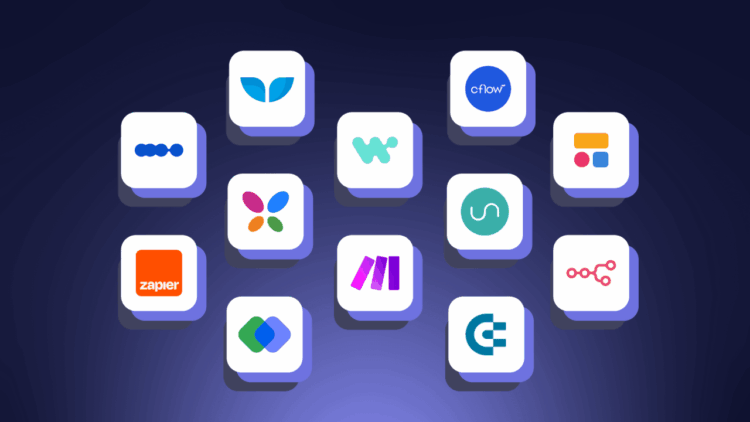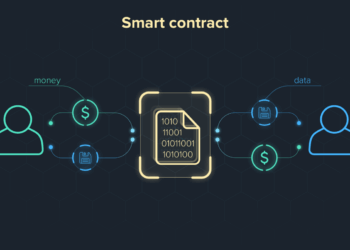Workflow Automation Tools For Exponential Growth
In the hyper-competitive digital economy, the margin between sustained success and stagnation often hinges on one factor: efficiency at scale. For content creators, digital publishers, and online businesses heavily reliant on Google AdSense revenue, the ability to rapidly produce, publish, and manage high-quality content is directly proportional to profitability. Manual processes are not just slow; they represent a severe constraint on Cost Per Click (CPC) and Revenue Per Mille (RPM) growth. The solution lies in a strategic overhaul, transitioning from outdated manual operations to a fully integrated system powered by Workflow Automation Tools.
These sophisticated tools, often leveraging Artificial Intelligence (AI) and Machine Learning (ML), are no longer a luxury but an absolute necessity. They don’t just speed up tasks; they fundamentally restructure the business, freeing human capital to focus on high-value, strategic initiatives—the essential components of E-E-A-T (Experience, Expertise, Authoritativeness, and Trustworthiness) that drive premium rankings and attract high-paying advertisers. This comprehensive guide details the required architectural shift, specific tools, and strategic implementations necessary to automate business workflows for maximum SEO benefit and exponential AdSense earnings.
The Strategic Imperative of Workflow Automation
Workflow automation involves using technology to execute a series of business tasks or steps without manual intervention. For an AdSense-driven enterprise, the goal is clear: maximum output with minimal human effort.
The Direct Impact on AdSense Revenue
A. Increased Content Velocity: Automation allows for the consistent publication of a higher volume of SEO-optimized content. More content leads to more indexed pages, more ranking opportunities, and ultimately, more traffic. B. Precision Targeting of High-Value Niches: Automated keyword research and topic clustering tools ensure that every piece of content targets high-commercial-intent, high-CPC keywords, guaranteeing that the traffic generated attracts premium advertising bids. C. Elimination of Operational Drag: By automating routine tasks like scheduling, data entry, and reporting, the operational cost per content unit decreases significantly. This increases net profit margins even if gross revenue remains stable. D. Enhanced Technical SEO Compliance: Automation tools provide real-time monitoring and reporting for crucial technical SEO factors (e.g., Core Web Vitals, Schema Markup), ensuring the site remains in Google’s good graces, a prerequisite for high rankings.
Core Workflow Areas Transformed by Automation
Effective workflow automation touches every aspect of a digital business, from the initial spark of a content idea to the final revenue reporting.
Content Ideation and Production Pipeline
The most significant time sink for publishers is the content creation process itself. Automation streamlines this from start to finish.
A. Automated Topic Clustering and Ideation: Tools instantly analyze the top 100 search results for a broad seed keyword, identifying related entities, “People Also Ask” questions, and missing subtopics. They then generate a structured content brief and a prioritized list of related articles (the content cluster), all without human intervention. B. AI-Driven Drafting and Summarization: Generative AI (GenAI) drafts an initial article based on the automated brief. Crucially, it can also summarize large documents, transcribe videos into text, or rapidly create multiple language variations, exponentially increasing content volume. C. Grammar, Style, and Plagiarism Checks: Automated editing tools integrate directly into the drafting phase, correcting grammatical errors, optimizing readability, and running instantaneous plagiarism checks to ensure the content is unique and adheres to quality standards. D. Image and Visual Asset Generation: Tools like Midjourney or Dall-E are integrated to generate unique, relevant hero images and in-text graphics based on the article’s topic, dramatically reducing the time and cost associated with graphic design.
Content Publishing and Distribution Automation
Once content is finalized, automation ensures it is published and promoted instantly and correctly across all channels.
A. Scheduled Publishing and CMS Integration: Content is automatically formatted for the Content Management System (CMS), scheduled for optimal publication times, and categorized correctly with relevant tags and author attribution. B. Cross-Channel Promotion: Upon publishing, a sequence is triggered: short variations of the title and summary are automatically drafted for social media (Twitter, LinkedIn, Facebook), and a brief snippet is prepared for the email newsletter, ensuring immediate traffic generation. C. Internal Linking Integration: Advanced tools read the newly published article and automatically suggest the best internal links from existing high-authority pages, and conversely, automatically update older articles to link to the new piece, optimizing link equity flow. D. Sitemap and Indexing Management: The site’s sitemap is automatically updated, and, where relevant, a notification or ping is sent to search engines to prompt faster crawling and indexing, ensuring the new content starts earning revenue sooner.
Data Analysis, SEO Monitoring, and Reporting
Automation transforms complex data analysis from a once-a-month task into continuous, real-time intelligence.
A. Real-time Performance Monitoring: Tools continuously track rankings, traffic sources, conversion goals, and on-page engagement metrics (e.g., time on page, bounce rate). They send automated alerts for significant changes (e.g., a sudden drop in a key keyword’s ranking). B. Automated SEO Health Audits: The system runs daily or weekly technical audits, flagging critical issues like broken links, errors, slow page speed (CWV issues), and improper Schema Markup. It often provides specific, prioritized action items for the technical team. C. AdSense Revenue Correlation Reporting: Automated reports correlate content performance (ranking and traffic) directly with AdSense earnings (CPC and RPM) for each article. This data instantly highlights which content topics and formats are the most profitable, allowing strategists to double down on success. D. Competitor Movement Tracking: The system tracks competitors’ newly published content, ranking movements, and backlink acquisitions, providing an automated competitive analysis report that informs the next content strategy cycle.
Essential Workflow Automation Tool Categories
To achieve comprehensive automation, a blend of specific tool types is required, ranging from general integrators to niche SEO experts.
The Integration and Orchestration Layer
These are the “glue” tools that connect all your separate applications, creating a continuous workflow.
A. Integration Platforms (e.g., Zapier, IFTTT): These tools automate sequences between web apps. For example, a Zap can be set up to monitor a Trello board for a “Ready to Publish” status, then automatically trigger the content formatting script and upload the draft to the CMS. B. Custom Scripting and Webhooks: For more complex, proprietary needs, custom scripts (often running on cloud functions) use webhooks to communicate between tools, enabling a tailored, multi-step sequence (e.g., “If the AI scores content originality above , then send to the human editor; otherwise, send to the rewrite queue”). C. Project Management Automation (e.g., Asana, ClickUp): These platforms use AI to automatically assign tasks, adjust deadlines based on dependencies, and send reminders, ensuring no step in the content pipeline is missed.
Specialized AI and SEO Automation Tools
These tools perform the high-value, niche tasks that directly impact rankings and AdSense revenue.
A. Generative AI Content Suites: Platforms like Jasper, Copy.ai, or proprietary LLMs are used to generate the first draft, metal descriptions, and social media teasers. Their value is the immense speed and scale of text generation. B. Technical SEO Auditors: Tools that automatically crawl and assess the health of the website against Google’s technical requirements, providing instantaneous, actionable feedback on performance issues and suggesting optimal solutions. C. Internal Link Builders: Tools that leverage natural language processing (NLP) to understand the context of new and old articles, automatically suggesting and implementing internal links with contextually relevant anchor text. D. Ad Optimization Platforms: While not direct AdSense partners, these tools use ML to test and optimize the placement and density of ad units on a page, often resulting in higher CTR and RPM than generic auto-ad settings.

Strategic Implementation and Advanced Automation Tactics
Implementing automation is a process that requires strategic foresight to ensure the tools enhance, rather than hinder, the quality required for .
Establishing the “Human-in-the-Loop” Quality Gate
Automation must not compromise the authority and trust of the content, which are human-driven factors.
A. Mandatory Human Vetting Points: Define specific steps in the workflow where human expertise is mandatory. This includes the initial prompt engineering (setting the strategic direction), fact-checking (verifying AI claims), and E-E-A-T injection (adding proprietary insights or personal experience). B. Feedback Loop Integration: Automated tools should be configured to capture human revisions and feedback. This data is then fed back into the AI models or content generation prompts, allowing the automation to continuously learn and improve the quality of its output, minimizing future human correction time. C. Creative Strategy Focus: By offloading repetitive tasks, the human team’s workflow shifts entirely to creative strategy: identifying novel content formats, cultivating the brand’s unique voice, and building high-authority relationships for link acquisition.
Advanced Automation for Scalable Revenue
A. Automated Content Refresh Cycles: Automation tracks content age and performance. When an article drops in rank or falls below a certain traffic threshold, the system automatically sends it to the GenAI tool for a refresh. The AI then drafts a new introduction, updates statistics, and suggests new relevant sections based on current top-ranking pages. B. Dynamic Content Personalization: For sites with high user login rates, automation tools can dynamically adjust content elements (e.g., call-to-action buttons, internal links) based on the user’s prior behavior or segmentation profile, leading to higher conversions and engagement metrics. C. Automatic Compliance and Legal Review: For regulated niches (e.g., finance, health), specialized tools can automatically scan content for mandatory disclosures or legal compliance phrases before publishing, mitigating risk and ensuring brand trustworthiness. D. A/B Testing Automation for SERP Snippets: Automation continuously tests variations of your page title and meta description in a controlled environment to determine which combination yields the highest CTR from the search results. Higher CTR equals more traffic and higher ranking potential.

Conclusion: The Automated Future of Digital Publishing
The integration of workflow automation tools is the single most powerful strategy for scaling a digital business dependent on high organic traffic and AdSense revenue. It moves the organization from a labor-intensive model to a system of intelligent content factories. By leveraging AI to automate content drafting, publishing logistics, technical SEO maintenance, and performance analysis, publishers can achieve a scale and precision that is simply impossible through manual means.
This automated ecosystem guarantees a constant stream of high-quality, high-CPC content, allowing human strategists to elevate their focus to the proprietary experience and authority that will keep the site far ahead of competitors. The choice is stark: automate and dominate, or remain manual and fade into the background of a search engine dominated by speed and intelligence.












